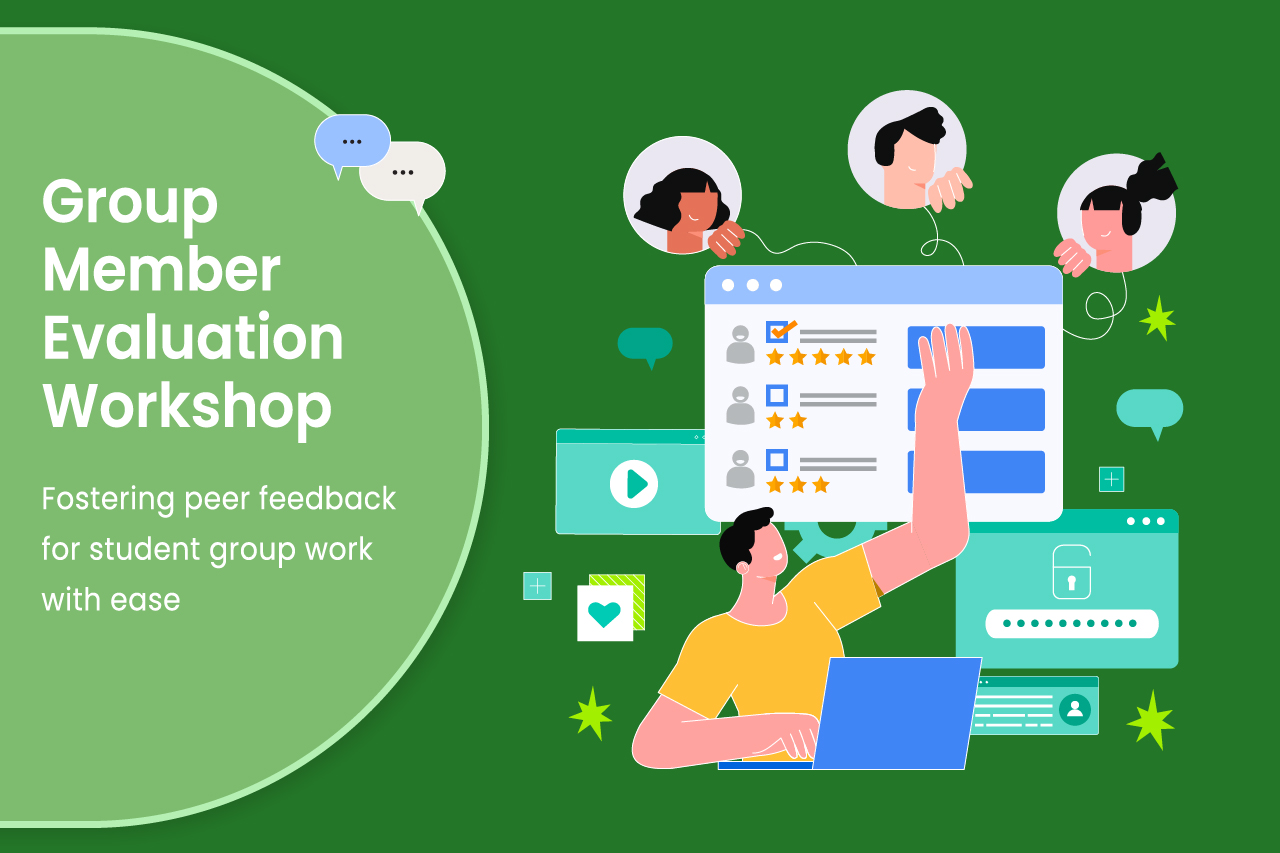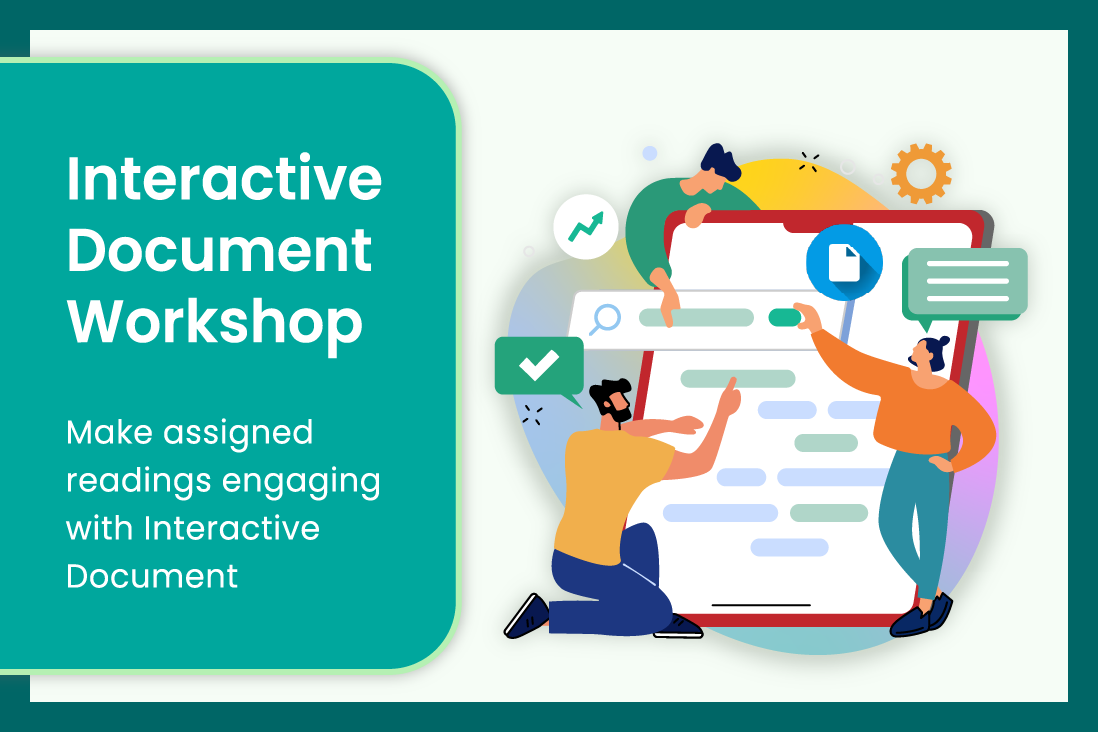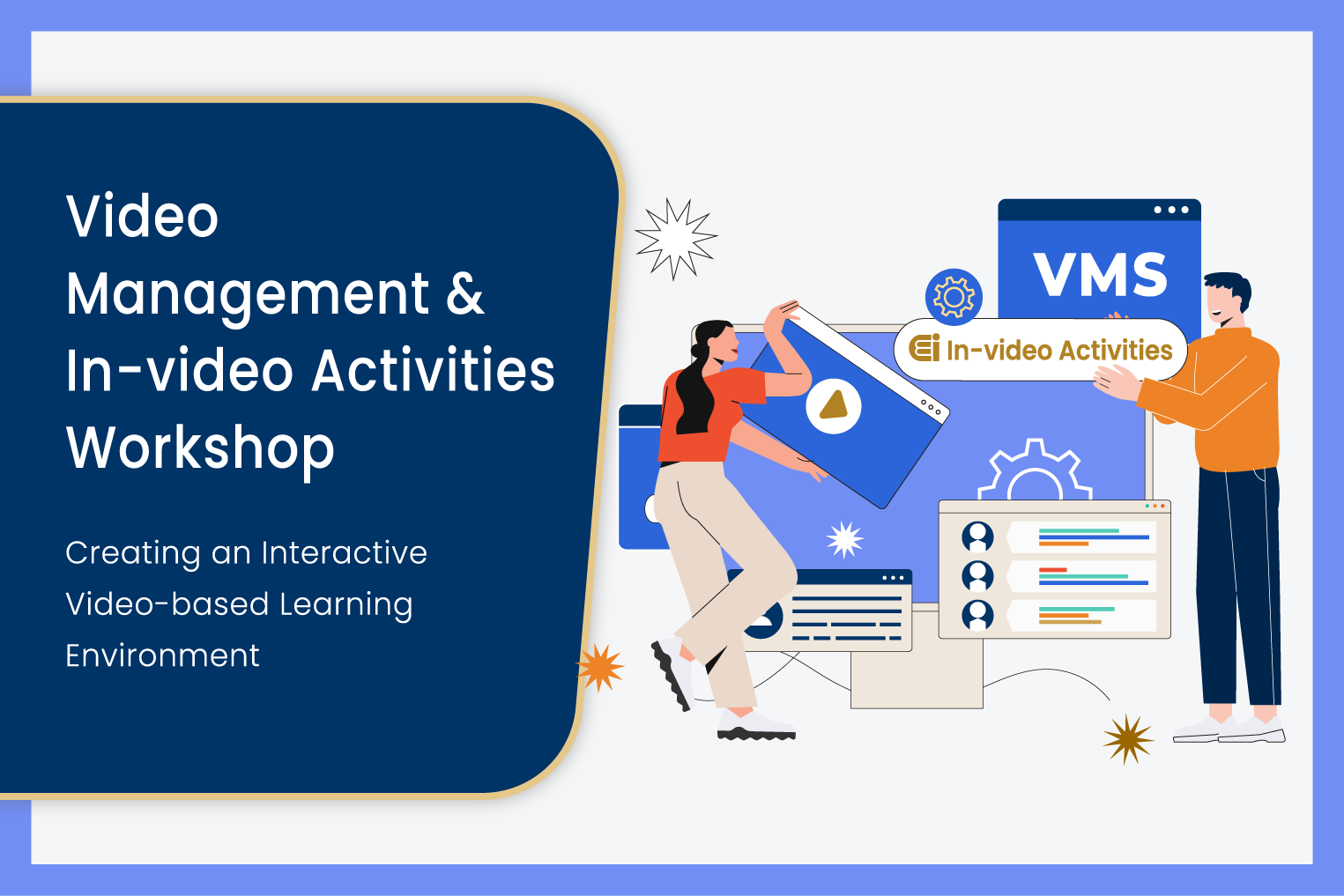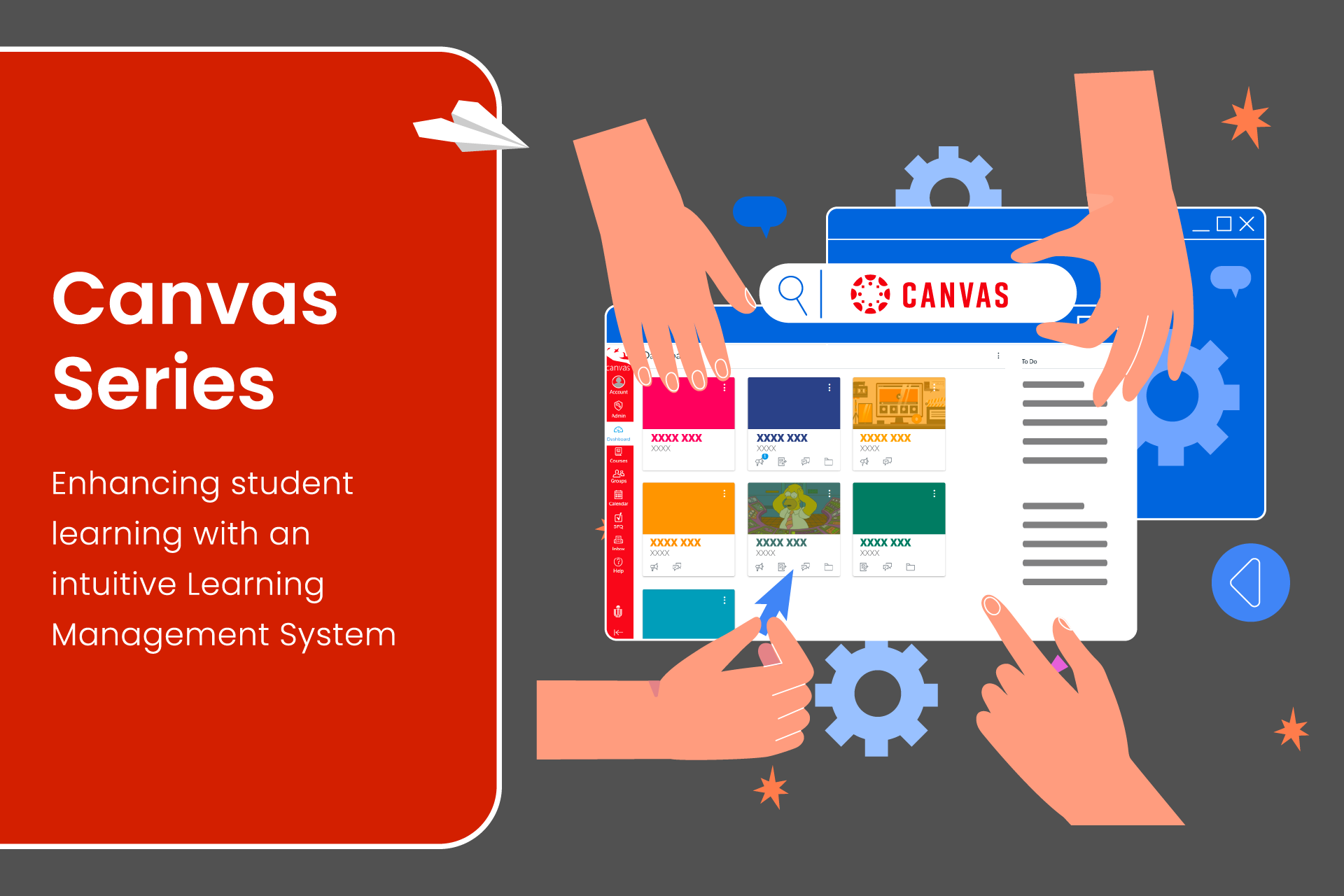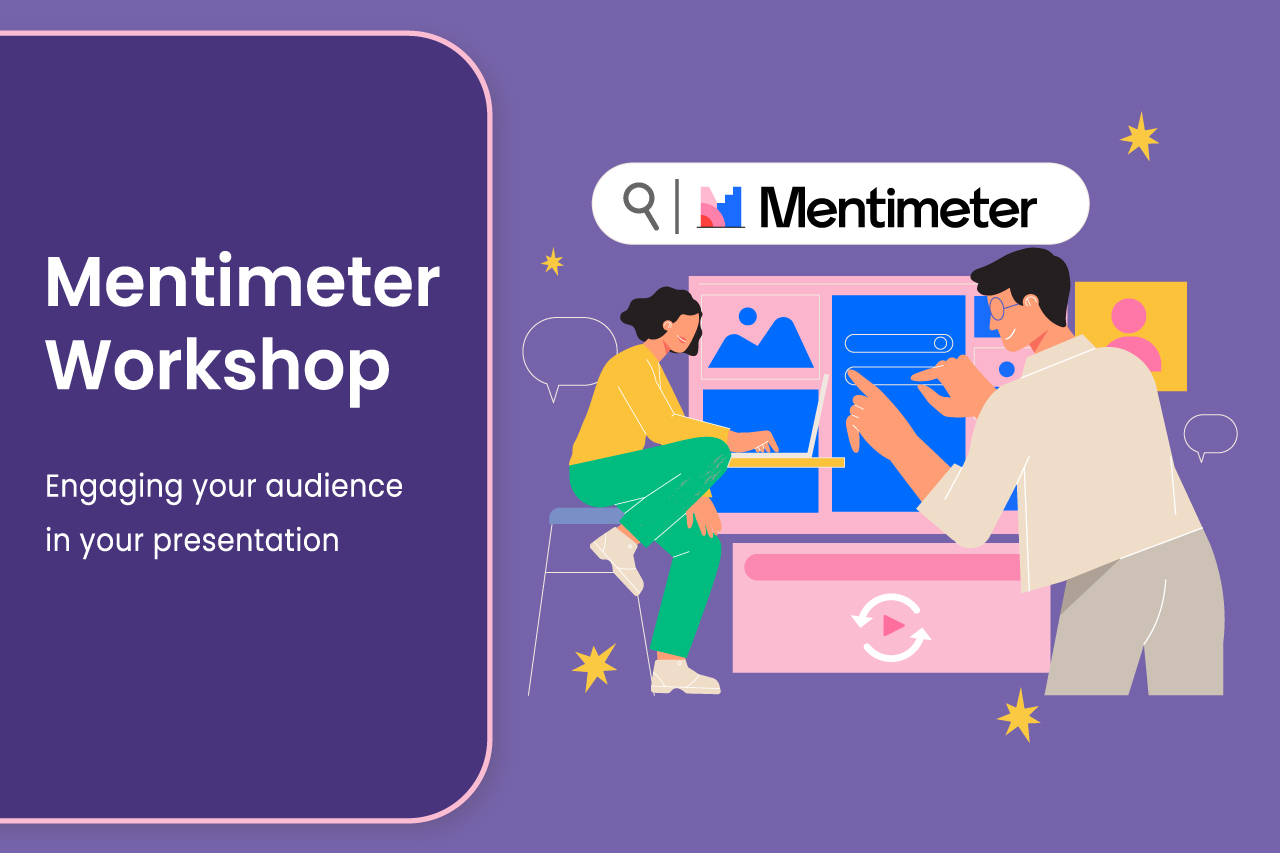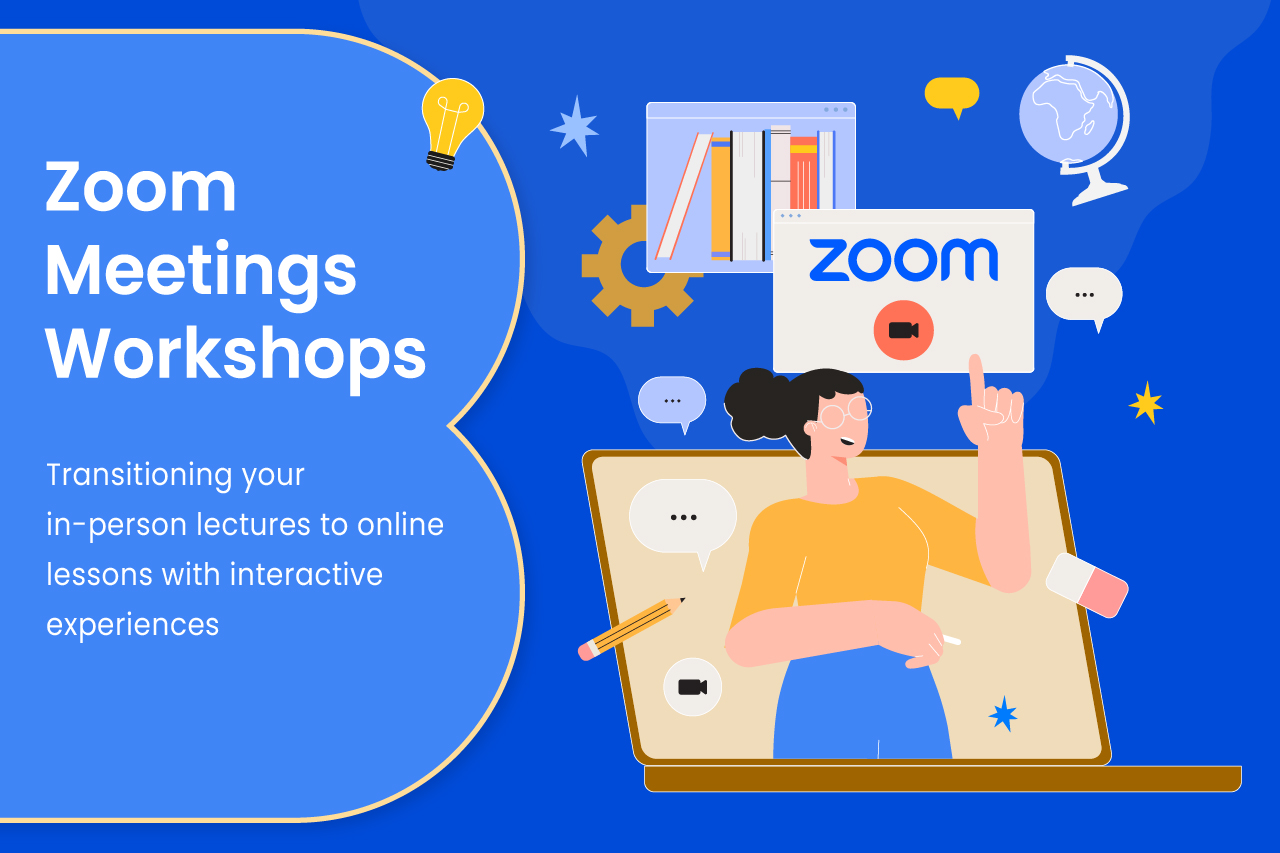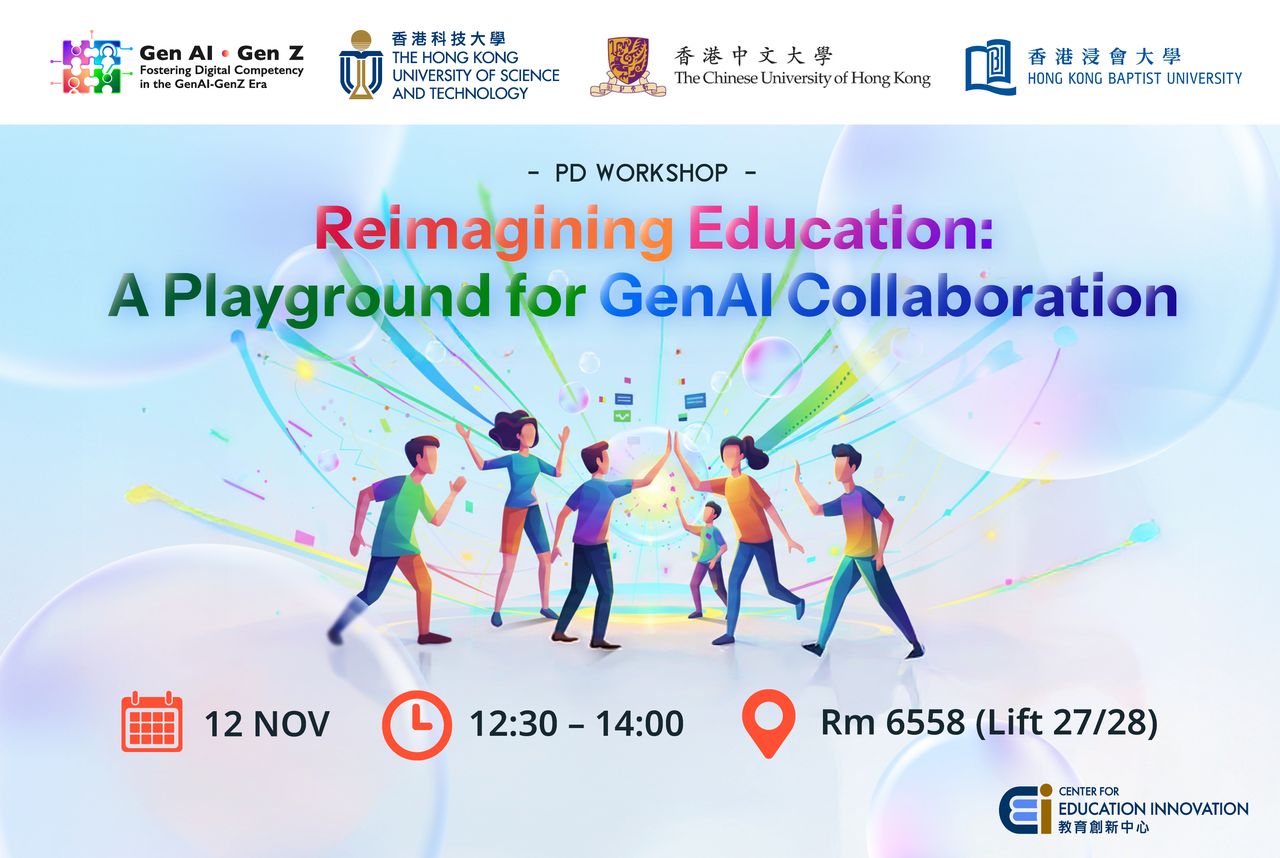Empowering Academic Success: Strategies and Evaluation for Enhanced Teaching and Learning
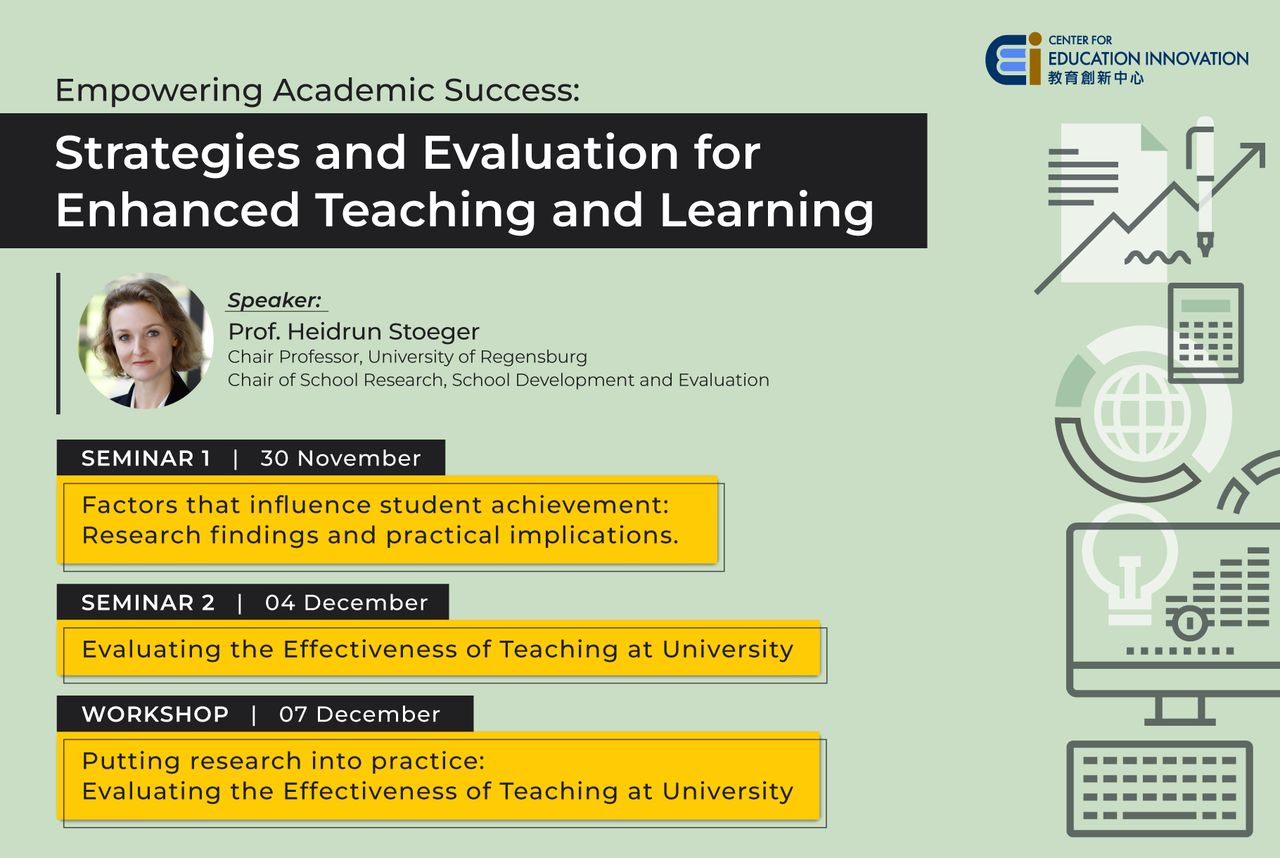
About the Series
This workshop series is designed to offer a deep dive into the multifaceted aspects of student achievement and teaching effectiveness within the university setting. Through a blend of research-based insights and actionable strategies, this series will explore the numerous factors influencing student performance, from cognitive and non-cognitive variables to the environment they learn in. Participants will engage with the latest findings on learning prerequisites, and how to nurture these elements to foster academic excellence.
| Date: | 30 NOV & 4, 7 DEC 2023 |
|---|---|
| Time: | 12:30 – 14:00 |
| Venue: | Room 6558 (Lift 27/28) |
| Organized by: | Center for Education Innovation (CEI) |
| Speaker: |
|---|
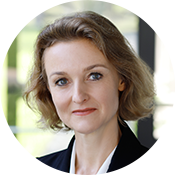 |
Prof Heidrun Stoeger Heidrun Stoeger, Ph.D., is a full professor at the University of Regensburg and holds the Chair of School Research, School Development, and Evaluation. She also has an honorary professorship at the Pontificia Universidad Católica del Perú (PUCP). In addition to her duties as a chair professor at the University of Regensburg, she advises numerous doctoral and postdoctoral researchers, serves on university committees for academics and research, and advises policymakers and governments on implementing effective educational services. She also directs seven major grant-funded research projects with more than 40 employees. Her research projects are about developing diagnostic tools to optimally support learners in different talent domains as well as using the state of the art in educational science to provide learners with the best possible curricular and extracurricular educational offerings and ensure the effectiveness and transparency of the services through accompanying research and further develop the knowledge base about which methods work best for whom under which conditions. She has over 250 publications in peer-reviewed journals, books, and handbooks; edited over 40 special issues and collections; wrote books and held more than 50 invited international keynote lectures. Various governmental organizations and foundations have engaged her in Europe, North America, South America, the Gulf Region, East Asia, and Oceania to provide advice about implementing effective research-based educational services. The advisory activities particularly relate to her key areas of research, STEM education, talent development, and mentoring. |
|---|
Details of Series
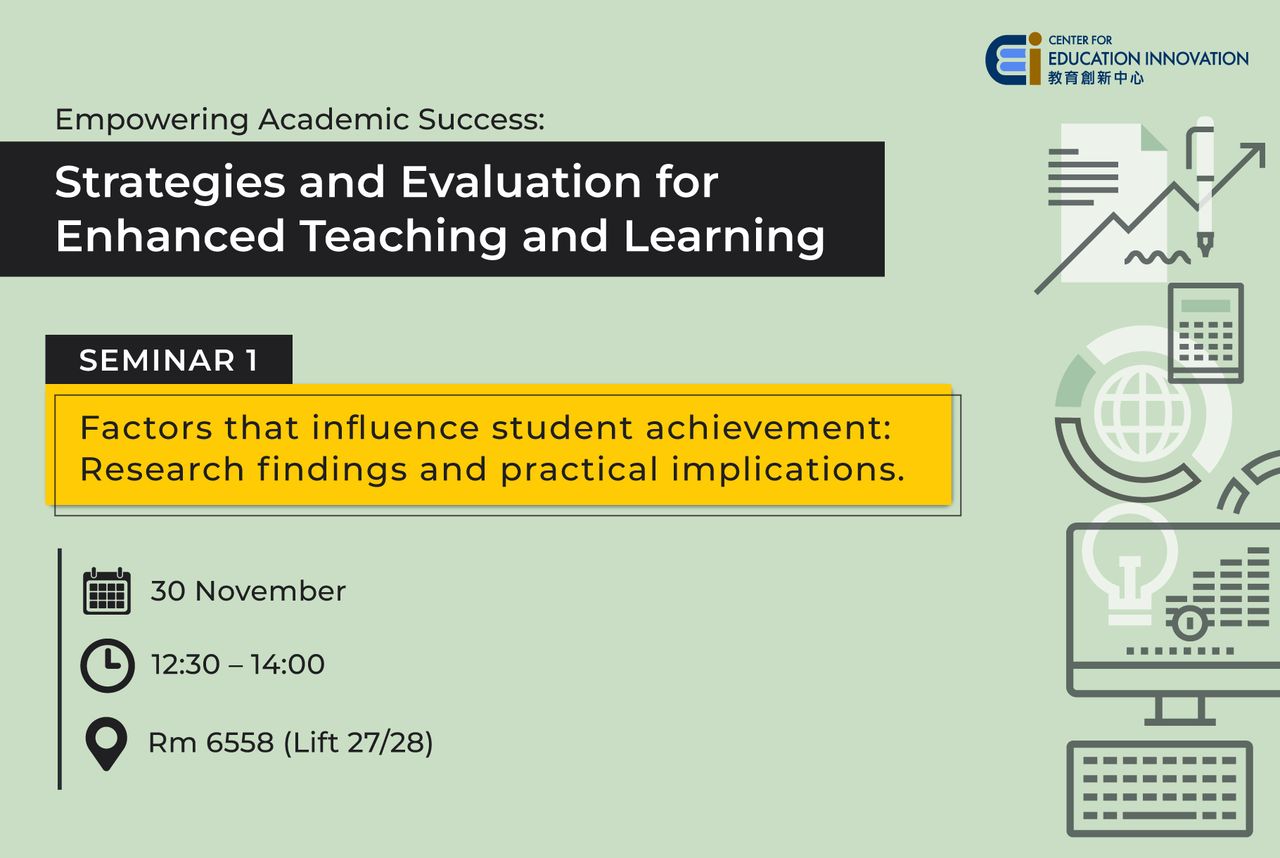
Achievement plays a vital role at the university level. In addition to the quality of teaching, various environmental factors and student characteristics have a significant influence. In my presentation, I will provide an overview of research findings on characteristics that influence student performance. One focus will be on student characteristics and their enhancement in the university context. It will discuss, among other things, the significance of cognitive (e.g., intelligence, prior knowledge, learning strategies) and non-cognitive (e.g., emotions, motivation) learning prerequisites for successful university studies and how these characteristics can be influenced.
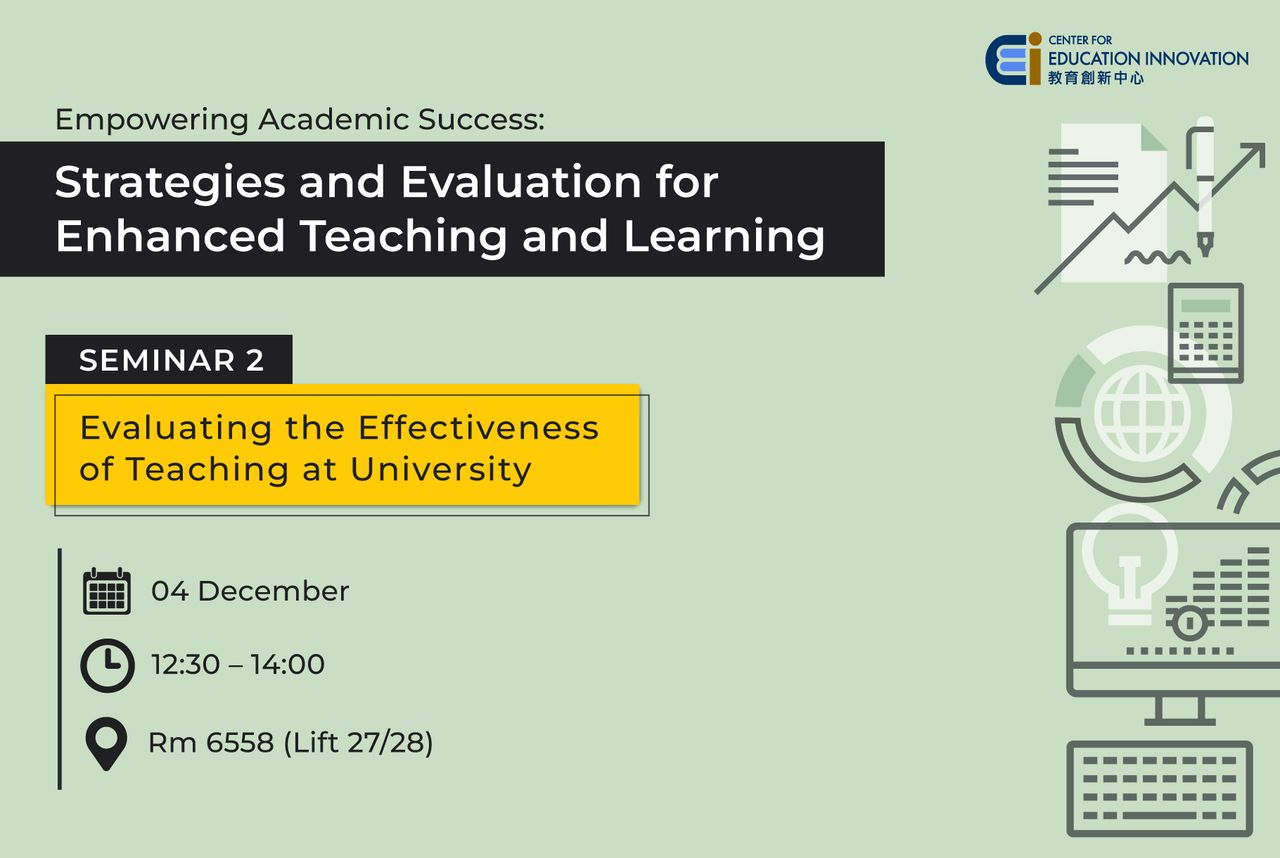
I will start my presentation with an introduction to the primary purposes of evaluating university teaching effectiveness. Typical approaches to student evaluation of teaching (SET) will be discussed as the most common approach to assessing university teaching effectiveness. After that, commonly expressed concerns about SET will be introduced, and research focusing on these concerns will be presented. For example, I will present research about the validity of SET, students’ competencies in evaluating teaching quality, and different kinds of biases in SET (e.g., Do easy courses get better evaluations than difficult ones? Do student and teacher characteristics influence SET scores and if so, which?). Finally, I will introduce alternative approaches to SET and how these can be used both to provide evidence of an institution’s performance for accounting and auditing practices and to improve the quality of teaching.
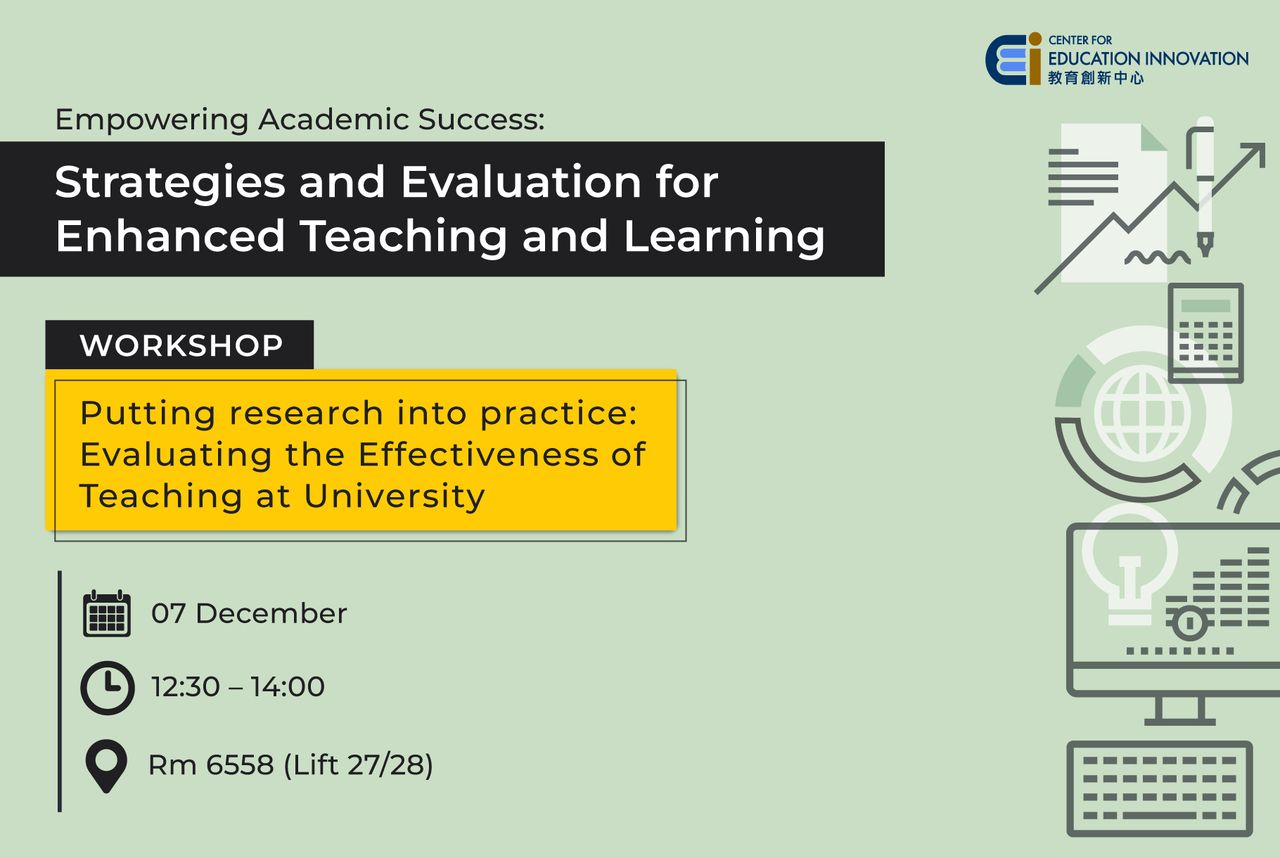
Evaluations are viewed skeptically by some lecturers because they are associated with control or assessed as little helpful to improve one’s teaching. Nevertheless, systematic evaluations of teaching and courses have long been established at all major universities and are often mandatory. The results of teaching evaluations also play an important role in accreditation and assessment processes and university appointment procedures.
The workshop will convey practice-oriented knowledge on evaluation and suggest how teachers can use different evaluation methods to examine and improve teaching processes. In addition to standardized evaluation methods (e.g., standardized questionnaires for student evaluation of teaching), alternative evaluation methods (e.g., use of electronic devices for real-time feedback, and self-evaluations) will be discussed. Since lecturers sometimes experience standardized evaluation procedures as being remote from the actual teaching, a focus is placed on self-evaluations in which lecturers can align their teaching intentions and their evaluation questions based on their active "independent" planning of the evaluation.
Among other things, we will discuss how different evaluation methods can be used to:
- reflect on and further develop one’s teaching activities
- optimize course designs
- promote communication between lecturers and students
- assess students' (prior) knowledge
- create conditions for successful learning and select suitable forms of teaching



